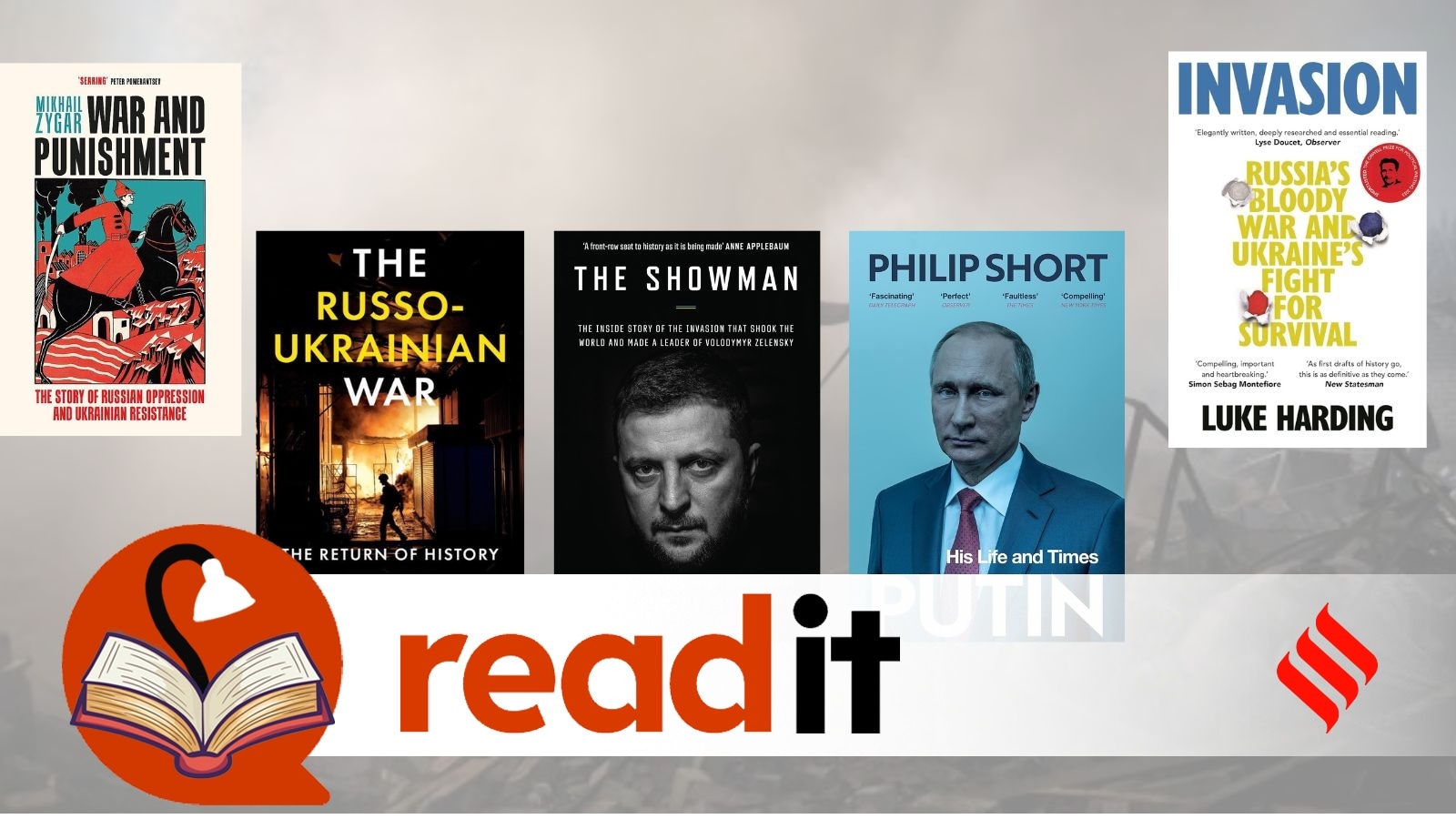It was the war that was supposed to be over in a week or so, if not days. After all, on one side was the largest nation in the world, a super power led by one of the most formidable leaders in modern history, on the other a relatively smaller, if well-endowed, nation with a former comedian as its president. Russia vs Ukraine. Putin vs Zelensky.
Neither was supposed to even be a contest, leave alone a war. And yet, more than three years after Putin announced a “special military operation” and Russian forces invaded Ukraine, the war goes on. Donald Trump has attempted to mediate, going from browbeating to charming Zelensky, the European Union has closed ranks behind Ukraine, Putin seems isolated at times, but the deadliest war in Europe since the Second World War shows no sign of ending. The drones continue to fly, the bombs continue to fall, and books trying to make sense of it all keep coming off the printing presses.
The war from the reporters’ lens
Perhaps the best book to read on the war itself is Yarosav Trofimov’s Our Enemies Will Vanish: The Russian Invasion and Ukraine’s War of Independence. A Pulitzer Prize winner and a correspondent for the Wall Street Journal, Trofimov was in Kyiv when the invasion began and his 400 page book is a riveting read, complete with not just broad accounts of the politics and battles in the war, but more tellingly, the human side of it.
We get to read the experiences of day to day Ukranians as they try to go about the business of life, with death literally hovering above them. This is an incredibly human and very moving book, and although Trofimov’s sympathies lie entirely with Ukraine (he was born in Kiev), he does his best to be objective. The result is a book that reveals the horror as well as the heroism of Ukraine against impossible odds. Trofimov is a skilful narrator, and Our Enemies Will Vanish (which incidentally is a line from the Ukranian national anthem) reads almost like a novel.
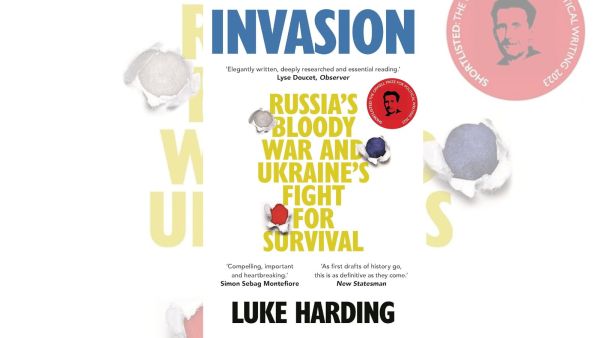 The Guardian’s Luke Harding has come out with Invasion: The Inside Story of Russia’s Bloody War and Ukraine’s Fight for Survival. (Source: amazon.in)
The Guardian’s Luke Harding has come out with Invasion: The Inside Story of Russia’s Bloody War and Ukraine’s Fight for Survival. (Source: amazon.in)
Another notable journalist who was in Kyiv when the Russian tanks rolled across the Ukrainian Border was The Guardian’s Luke Harding, and he too has come out with an account of the war between the two nations, Invasion: The Inside Story of Russia’s Bloody War and Ukraine’s Fight for Survival. At around 370 pages, it is slightly slimmer than Trofimov’s book and is more journalistic in nature.
While Trofimov has focused on the impact of the conflict on people, Harding covers the conflict itself but also traces its roots and presents the war as not just a clash between two nations, but also between two cultures. He is particularly brilliant in comparing Zelensky and Putin and their different ways of handling matters – his description of Putin as a person living in “a strange and unreachable realm,” is chilling when one considers the kind of power Putin wields.
While it lacks the passion and emotional appeal of Our Enemies Will Vanish, Invasion is pretty much a must-read for those who want a broader overview of the conflict.
Story continues below this ad
The lies behind: the background to the war
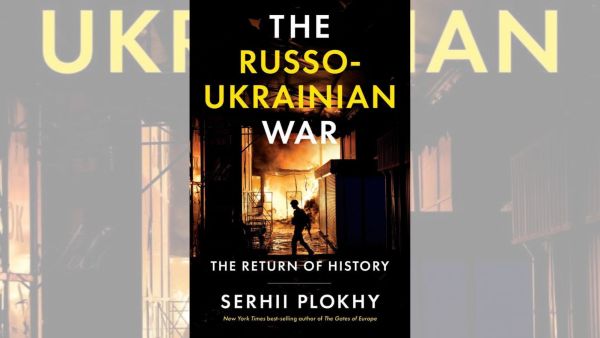 Serhii Plokhy’s The Russo-Ukrainian War: The Return of History offers a more comprehensive look at relations between the two countries. (Source: amazon.in)
Serhii Plokhy’s The Russo-Ukrainian War: The Return of History offers a more comprehensive look at relations between the two countries. (Source: amazon.in)
While Trofimov and Hardy focus mainly on the ongoing Russia-Ukraine war, a much more comprehensive look at relations between the two countries comes from Serhii Plokhy’s The Russo-Ukrainian War: The Return of History. Plokhy, who is also famous for his works on Russia and the Chernobyl disaster, is considered to be one of the authorities on Ukrainian history (he is a professor of Ukrainian History at Harvard), and he looks at the ongoing war as having roots that are embedded deep into history.
Plokhy’s 380-page book might seem a little dry and factual for those wanting a more thrilling read, but provides detailed context for the current crisis, and looks at it not just as a power play by Putin but as a reflection of Russia’s long-standing belief that Ukraine was an integral part of itself. Plokhy also covers the current conflict in his book, but its greatest strength is the background he provides to the often-strained Russia-Ukraine relationship.
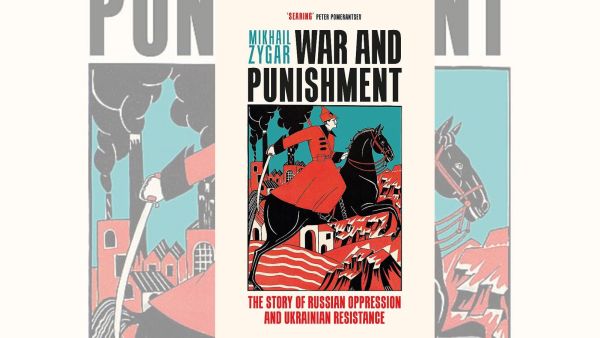 Russian journalist Mikhail Zygar’s War and Punishment: The Story of Russian Oppression and Ukrainian Resistance looks at the historical background to the conflict.
Russian journalist Mikhail Zygar’s War and Punishment: The Story of Russian Oppression and Ukrainian Resistance looks at the historical background to the conflict.
Russian journalist Mikhail Zygar’s War and Punishment: The Story of Russian Oppression and Ukrainian Resistance, is another book that looks at the historical background to the conflict. Zygar had shot to fame with his TV Rain channel, which provided an alternate news source to that from the Kremlin, and is also the author of the bestselling All The Kremlin’s Men, which looked at key people in Putin’s administration.
While looking at the current conflict and also providing portraits of Putin (who he says joined the KGB after reading Russian type James Bond books) and Zelensky, Zygar pulls out instances from Russian history and literature which reflect its difficult relationship with Ukraine. He also highlights a number of myths that have contributed to Russia’s way of thinking as regards Ukraine. His book is not as academically pleasing or researched as Plokhy’s, but is a much easier and entertaining read.
Story continues below this ad
Vladimir and Volodymyr: the two faces of the war
The Russia-Ukraine war is seen as not just a conflict between two nations, but also a clash between two personalities, Russia’s President Vladimir Putin and the President of Ukraine, Volodymyr Zelensky.
Although the two men share a very similar first name (“Volodymyr” and “Vladimir” are just different spellings), they could not be more dissimilar. Putin is a former KGB agent, known for his belief in traditional Russia and is seen as cold, calculating and ruthless and with the charm of a dead fish. Zelensky is warm and witty and a former comedian who stumbled into politics and has now become a symbol of freedom.
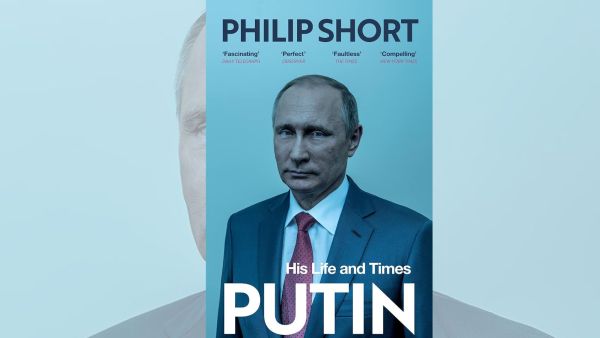 Those wanting to know Putin more closely should go for Philip Short’s Putin: His Life and Times. (Source: amazon.in)
Those wanting to know Putin more closely should go for Philip Short’s Putin: His Life and Times. (Source: amazon.in)
While picking out books on both men would require a separate ReadIt column in its own right (we are working on it, we promise), those wanting to know Putin more closely should go for Philip Short’s magnificent, magisterial Putin: His Life and Times. At almost 800 pages, it is a big book, but it is a compelling read, especially as Short, unlike many of Putin’s biographers does not vilify him but actually attempts to understand what influenced him to become the man he is today.
For those interested in Zelensky, Simon Shuster’s The Showman: The Inside Story of the Invasion That Shook the World and Made a Leader of Volodymyr Zelensky, is pretty much the book to go for. As Shuster had access to Zelensky and those who worked with him, his book is more warm and personal than Short’s, who had no access at all to Putin. However, Shuster’s portrayal of the Ukranian leader leans towards being a little too positive at places, and almost conforms to Zelensky’s view of matters.
Story continues below this ad
Incidentally, most of the books end before Donald Trump’s second term in the White House. So there is still more to be written about Russia and Ukraine. As hopes for a lasting peace grow, we hope that the next book will be about how it all ended, and will be published shortly. After all, wars seldom make for pleasant reading. But then as George Santayana so memorably said, those who forget history are condemned to repeat it. Which is why we need to read about Russia, Ukraine, Vladimir and Volodymyr…and so many others.
